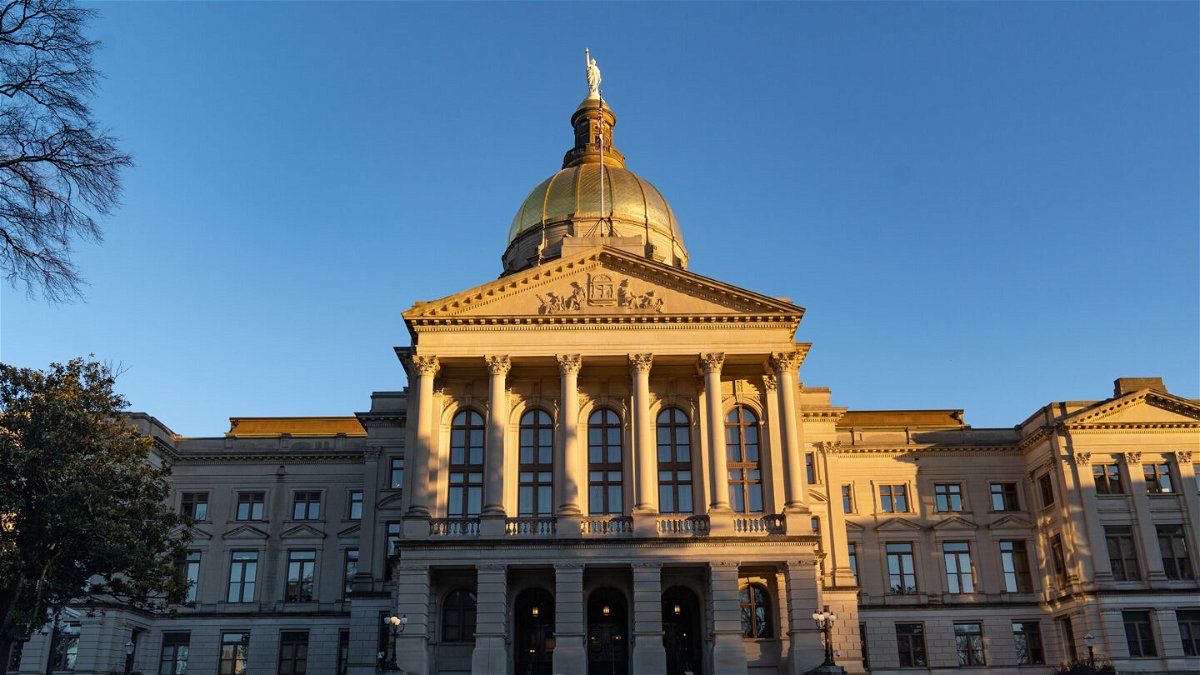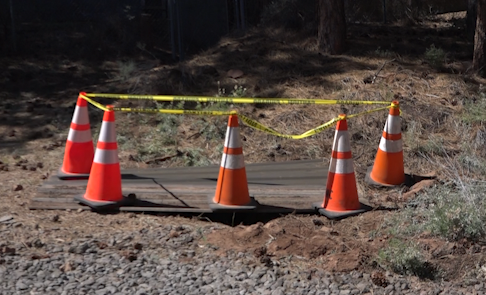The elections police are coming

A measure moving through the Republican-controlled Georgia legislature would hand new election policing powers to the state's bureau of investigations.
By Fredreka Schouten and Kelly Mena, CNN
A version of this story appeared in the CITIZEN BY CNN newsletter. To get it in your inbox, sign up for free here.
A measure moving through the Republican-controlled Georgia legislature would hand new election policing powers to the state’s bureau of investigations.
The bill under consideration in the Georgia House would give the Georgia Bureau of Investigations the power to probe election fraud allegations — supplementing the work currently overseen by state election officials.
If the proposal becomes law, the Peach State would become the second state in recent weeks to beef up enforcement of election fraud — a crime that federal and state officials say is exceedingly rare.
Last week, the Florida legislature created a scaled-back version of a new election police force that had been sought by Republican Gov. Ron DeSantis, who is on the ballot for reelection this year and has presidential ambitions for 2024.
The measure, headed to DeSantis’ desk for his signature, would establish an Office of Election Crimes and Security within the Department of State with a staff of 15 to conduct preliminary investigations of election fraud. In addition, the measure calls for DeSantis to appoint up to 10 law enforcement officers to the Florida Department of Law Enforcement to probe election crimes.
The Florida measure also makes it a felony to return more than two mail-in ballots on behalf of other voters.
The stepped-up fraud-detection efforts in these states are part of a wave of bills moving through Republican-controlled state legislatures aimed at rewriting election procedures, following President Joe Biden’s 2020 victory. Former President Donald Trump and his allies have falsely attributed his loss in Georgia and other key states to election fraud.
In Georgia, which has a Republican governor and secretary of state, Biden’s narrow 2020 victory was certified after three counts of ballots. And judges have tossed out several lawsuits claiming fraud.
Voting rights advocates say the enhanced policing is unnecessary and could chill participation in elections, if voters, election workers or third-party groups fear prosecution for honest mistakes.
An Associated Press review last year of every potential fraud case in six key battleground states found fewer than 475 cases — too few disputed ballots to have made any difference in the outcome of the 2020 election.
But proponents of the bills say any fraud is too much — and are committing millions of taxpayer dollars to root it out. (Florida state Rep. Daniel Perez, a Republican who guided the election police force bill through the Florida House, said both components of the law-enforcement package had a $3.7 million price tag.)
In Florida, DeSantis is expected to sign the bill. His aides say having a team dedicated to investigating election fraud allegations will serve as a deterrent to wrongdoing.
The obscure legal theory that could upend US elections
Warning: We’re about to wade into some wonky legal territory here. But it’s sort of important to the future of US elections.
Last week, Democrats scored a big win when the Supreme Court rejected Republican-led challenges of congressional district maps in two key states, Pennsylvania and North Carolina.
(As we noted in last week’s newsletter, Democrats are faring better than expected in the once-in-a-decade redraw of congressional maps.)
But the court’s action also set off alarm bells for those on the left because four of the court’s conservative justices expressed openness to an untested theory advanced by North Carolina’s GOP leaders: that the US Constitution leaves decisions about elections — including redistricting — to state legislatures, with no role for state courts to interpret state laws.
Some conservatives argue that this so-called “independent state legislature doctrine” gives state lawmakers unbridled power to decide election procedures — unchecked by their own state constitutions or state courts.
The idea has gained currency among Trump allies. Some argue the theory bars any deviation from long-established state practices without the explicit approval of state lawmakers. That included decisions by courts and election administrators to ease mail-in voting rules during the 2020 pandemic.
Keep in mind that the former President’s allies also sought to have some legislatures ignore Biden’s popular-vote victories their states in 2020 and install pro-Trump slates of electors instead.
Taken to its extreme, the doctrine could even prohibit state governors from vetoing election bills, Ian Millhiser wrote recently for Vox. In the last year, Democratic governors in key battleground states, such as Michigan and Wisconsin, have vetoed voting restrictions approved by Republican-controlled legislatures.
As Justice Neil Gorsuch wrote in a 2020 dissent: “The Constitution provides that state legislatures — not federal judges, not state judges, not state governors, not other state officials — bear primary responsibility for setting election rules.”
Critics of the theory, such as University of California law professor Rick Hasen, say it could block a state court from protecting voters’ rights enshrined in a state constitution.
It “could upend any rules that state courts — relying on state constitutions — put in place that affect federal elections, such as striking down voter ID laws under state constitutions,” Hasen recently told CNN Supreme Court reporter Ariane de Vogue.
Of course, should another case testing the doctrine land at the high court, five justices would need to agree before the court dramatically changed how US elections are run.
But, right now, at least four of them appear ready to listen.
20%
That’s the percentage of local election officials who say they are likely to leave their jobs before the 2024 presidential election, according to a new survey.
You need to read
- A new survey, referenced above, from the liberal-leaning Brennan Center for Justice, which offers a snapshot of the real-world consequences of the year of harassment and threats endured by election officials.
- Kelly’s story on the thousands of Texans who tried to vote by mail and ended up disenfranchised amid the confusion over the state’s new voting law.
- CNN’s Jeremy Harlan on the indictment last week of a county elections clerk in Colorado in a security breach investigation. The clerk, Republican Tina Peters, also recently declared a bid for Colorado secretary of state.
The-CNN-Wire
™ & © 2022 Cable News Network, Inc., a WarnerMedia Company. All rights reserved.



